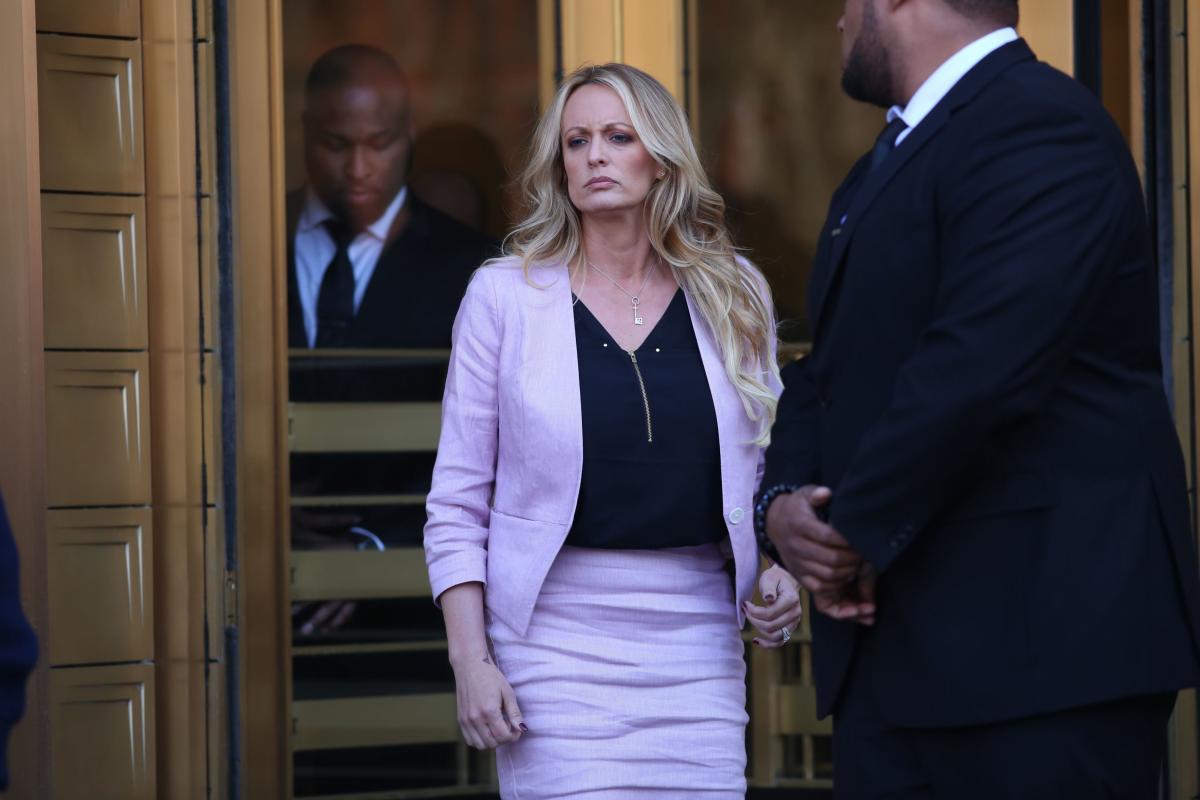Manhattan prosecutors dropped their case against the Trump Organization on Monday without calling their last witness — renewing the question of whether the district attorney still has his sights on Donald Trump.
Much of the district attorney’s case against the former president’s real estate company, which lasted eight days over three weeks, focused on two of his senior executives. They were corporate controller Jeff McConney and his convicted ex-boss, Chief Financial Officer Allen Weisselberg.
Weisselberg, 75 — the firm’s seasoned financial gatekeeper who pleaded guilty to the scheme at the heart of the case in August — told jurors he had worked with McConney to evade taxes on lavish benefits Trump pocketed during 15 years.
The $1.7 million in so-called fringe benefits included the rent of an Upper West Side apartment overlooking the Hudson River, his son Barry Weisselberg’s rent, more than $100,000 in parking fees, fancy furniture and other expensive expenses that nothing to do with his job as CFO. Weisselberg said Trump also personally paid his grandchildren’s tuition at Columbia Grammar & Preparatory School.
To hold the companies criminally responsible, prosecutors must prove that Weisselberg committed the tax fraud in his official capacity and that the company benefited from it. Weisselberg acknowledged last week that both were true.
Trump Org lawyers have argued that the CFO was a bad apple who secretly committed the crimes. The holding company and its subsidiary Trump Payroll Corporation have pleaded not guilty to a host of tax fraud charges.
The trusted corporate man who put Trump and his late father, Fred, in charge of their finances for five decades did not accuse anyone in the family of criminal misconduct. Weisselberg testified for the prosecution in exchange for a lesser prison sentence and is expected to be sentenced to five months in prison soon, under the terms of the plea deal.
Weisselberg, whose attorneys are paid by the Trump Org, was demoted to senior counsel following his arrest. His hefty salary and bonus were not changed.
McConney admitted that he had helped Weisselberg and the company’s chief operating officer, Matthew Calamari, Sr., cheat their taxes for years while he worked down Trump’s corridor on his eponymous tower on Fifth Ave. The controller was granted immunity for testifying before the grand jury.
Among the witnesses, prosecutors also called an accounts payable supervisor who broke checks at Trump Tower, a forensic accountant from the district attorney’s office, and a state tax inspector. They declined to call Donald Bender of the former Trump Organization accounting firm, Mazars, who has blamed Trump for the fraud.
The defense called Bender as a witness. He briefly testified about preparing the Trump Organization’s tax returns for more than 35 years and was scheduled to continue on Tuesday.
The case stems from the district attorney’s three-year Trump investigation. The detectives who initially led the case, Mark Pomerantz and Carey Dunne, abruptly resigned after District Attorney Alvin Bragg took over the case from his predecessor, Cyrus Vance, Jr.
Pomerantz’s letter of resignation, shared with the New York Times, described Bragg’s “misguided” reluctance to sue Trump as his reason for quitting. Bragg and his communications team have repeatedly pushed back that narrative.
The Times reported Monday that the prosecutor is now focusing on the initial focus of the investigation: a $130,000 payment to porn star Stormy Daniels ahead of the 2016 presidential election to silence her about a sexual encounter with Trump , a liaison he denies. Bragg is considering a new case against Weisselberg related to unrelated insurance fraud allegations to pressure him to share details of the hush money payment, the report said.
Cohen, Trump’s former lawyer and fixer, served three years in federal custody for the payment, which he said was made at the nominee’s direction. Weisselberg was granted federal immunity for testifying against Cohen in that case.
In February, he tried to have the district attorney’s case against him dismissed because detectives had spent so much time talking to Cohen, who the CFO said was waging a “vendetta” against him for his cooperation.
The Daily News could not confirm whether the prosecutor is considering new charges against Weisselberg. His attorney Nick Gravante declined to comment on the possibility of a new case.
Daniels’ attorney, Clark Brewster, said she had not heard from the Manhattan district attorney since the office told her to expect an interview request, which never came, more than a year ago. Cohen said he had not spoken to Bragg or anyone in his office. DA spokeswoman Danielle Filson declined to comment.

